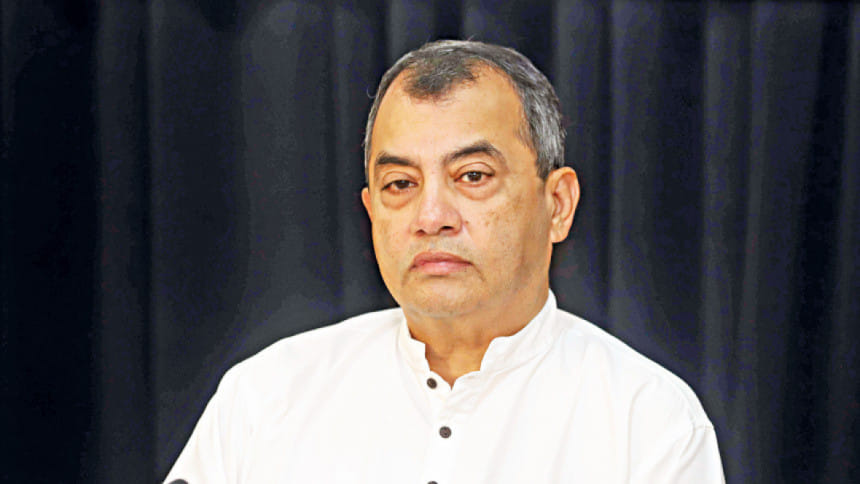Saber places water at heart of the fight against climate change

Environment, Forest, and Climate Change Minister Saber Hossain Chowdhury issued a stark warning today, saying that climate change is an existential threat to Bangladesh.
"Climate change has diverse impacts in our life. So there is no way to deny it," he said while addressing the 9th International Water Conference, titled "River, Water, and Climate Change: Creating space for Resilience" at a city hotel.
Saber said the water crisis was at the heart of the country's climate challenges.
"If we talk about sea level rise, glacier melt in the Himalayas, salinity intrusion, and those becoming climate refugees due to climate change, water plays a crucial role.
"When discussing solutions to these problems, water takes center stage. If we talk about sustainable development, there is no way to deny the role of water. Everything—climate change, water and river management, sustainability, and resilience—are all connected with water".
Saber pointed out that one of the fundamental challenges of climate change is the need to solve the problem faster than it is being created.
"When we look at climate change, resilience, and Agenda 2030, it is not on a four- or five-year basis. It is on a 15- or 20-year basis but the government faces a time constraint, posing an additional challenge."
He further emphasised the importance of considering water commons, saying, "When we talk about water, we need to talk about water commons. The availability and abundance of water are for all people and the ecosystem. How we use that resource goes to the heart of sustainability, using it in a manner that does not diminish these resources and leaves them intact for future generations."
He claimed that approximately 30-35 percent of air pollution is transboundary, and he expressed efforts towards regional understanding to address this.
He hoped that the outcomes emerging from the conference would be incorporated into policies.

 For all latest news, follow The Daily Star's Google News channel.
For all latest news, follow The Daily Star's Google News channel. 








Comments